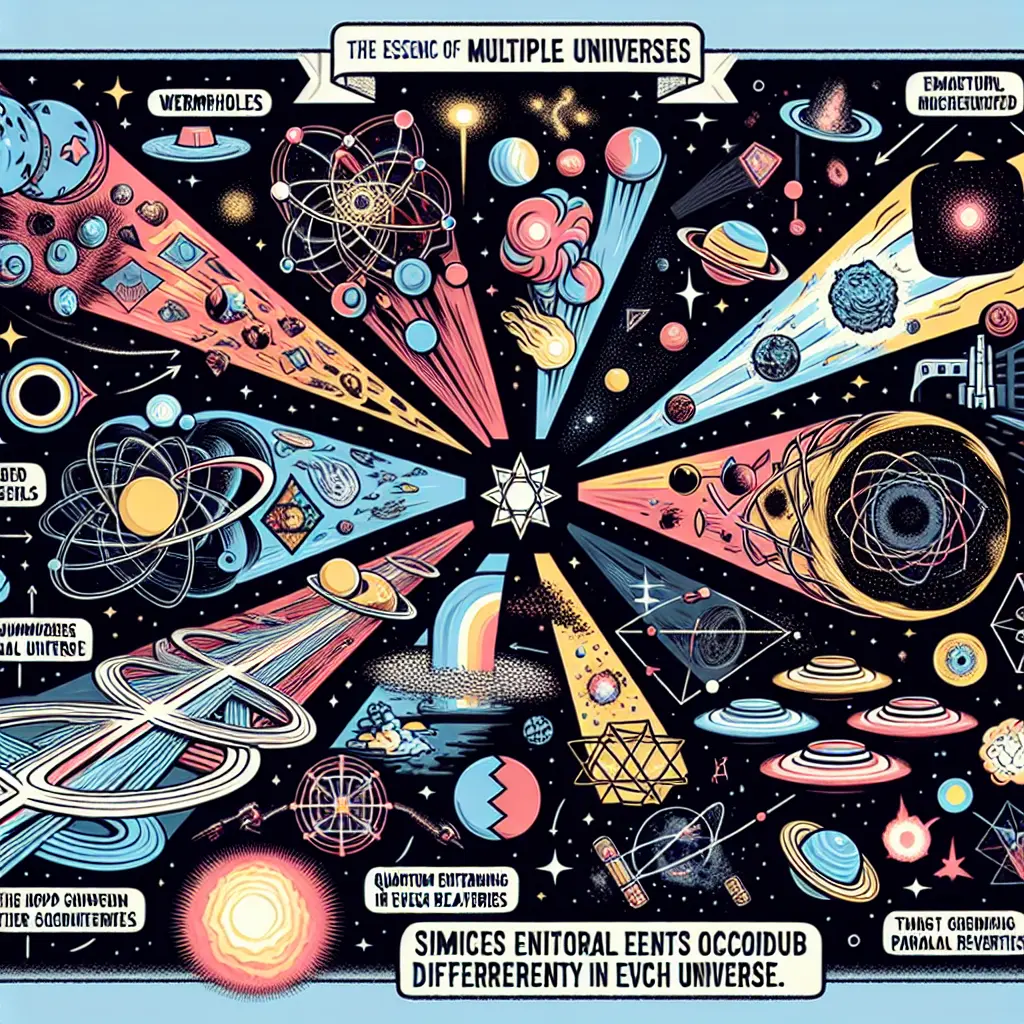
The Marvel Cinematic Universe (MCU) has long been a bastion of intricate storytelling and expansive character arcs. However, with the advent of Multiverse Theory in its narratives, Marvel has transcended traditional storytelling boundaries, allowing for unprecedented exploration of character development, thematic depth, and narrative innovation. This exploration of alternate realities not only enriches the Marvel Universe but also profoundly impacts the engagement and imagination of its audience.
Multiverse Theory and Its Integration into Marvel Narratives
The concept of a multiverse suggests the existence of multiple universes parallel to our own, each containing different versions of reality. In Marvel narratives, this theory is not just a scientific concept but a foundational element that has shaped the storytelling structure of both comics and films. The Marvel Multiverse allows characters to experience and interact with these alternate realities, leading to unique story arcs that would otherwise be impossible.
Marvel's approach to integrating the Multiverse is evident in both its comics and the Marvel Cinematic Universe (MCU). The MCU Multiverse, in particular, has been a pivotal plot point in recent films and series, providing a narrative device to explore 'what if' scenarios and resurrect beloved characters in new forms.
Impact of Multiverse on Marvel Storytelling
The introduction of the Multiverse has dramatically expanded the scope of Marvel storytelling. By embracing alternate realities, writers can explore complex themes such as identity, morality, and destiny in more nuanced ways. Characters can encounter different versions of themselves, confronting their inner demons or potential selves, which adds layers to character development and offers audiences a deeper emotional connection to their journeys.
For instance, the "Doctor Strange" series delves deep into the Multiverse, presenting a protagonist who navigates these complex realities, revealing different aspects of his character in each universe. This exploration enriches the narrative, making it multidimensional and more engaging.
Marvel Universe Expansion Through Multiverse Characters
One significant impact of multiverse incorporation is the expansion of the Marvel Universe. It allows for an ever-expanding roster of characters. Each universe within the Marvel Multiverse can introduce new heroes and villains with distinct backgrounds and abilities, thus broadening the diversity and appeal of Marvel narratives.
This expansion is not just limited to superheroes but also includes a wide array of supporting characters and antagonists. For example, Marvel Villains from the Multiverse often present unique challenges to heroes, pushing them to evolve in ways that a single universe storyline might not allow.
Marvel Comics Multiverse: A Historical Perspective
The concept of a multiverse isn't new to Marvel comics. Historically, Marvel Comics Multiverse has been a playground for writers to experiment with different versions of characters and worlds. This creative freedom has resulted in iconic alternate reality stories such as "The Age of Apocalypse" and "What If...?" series, which explore compelling 'what could have been' scenarios that challenge characters in unexpected ways.
Recent Updates and Future Prospects
Recently, the MCU Multiverse was significantly highlighted in "Spider-Man: No Way Home" where characters from various Spider-Man film universes converged. This not only served as a nostalgia trip but also enhanced the narrative complexity of the MCU.
Moreover, upcoming projects like "Doctor Strange in the Multiverse of Madness" promise to dive deeper into these themes. The excitement around these projects underscores the audience's growing fascination with multiverse narratives.
The Significance of Alternate Realities in Marvel
Alternate realities offer more than just entertainment; they provide a canvas for exploring contemporary issues in a fantastical context. For instance, different realities can represent various societal structures or historical outcomes, offering commentary on real-world issues while maintaining a layer of separation that can make harsh truths more palatable for discussion.
The Role of Multiverse in Fan Engagement
The multiverse concept also significantly enhances fan engagement. Audiences are not just passive consumers but active participants imagining their scenarios or theorizing potential multiverse outcomes. This active engagement is crucial for the enduring popularity of Marvel narratives.
Challenges Ahead
Despite its benefits, navigating the multiverse narratives poses significant challenges. Maintaining continuity and coherence across multiple universes can be daunting for creators. There's also the risk of alienating audiences through overly complex or inconsistent storytelling.
Conclusion
In conclusion, the integration of Multiverse Theory in Marvel narratives has revolutionized how stories are told within the Marvel Universe. It has allowed for richer character development, more complex thematic exploration, and an expansive universe that continues to grow in depth and breadth.
As we look forward to more multiverse adventures in Marvel's slate, one thing remains clear: the possibilities are as limitless as the universes themselves. The future of Marvel storytelling is bright, diverse, and unbound by the constraints of a single reality.
Thank you for joining me on this exploration of the Multiverse in Marvel's expansive narrative landscape. Until next time, keep pondering the endless possibilities that lie across alternate realities!
Arthur Barnes